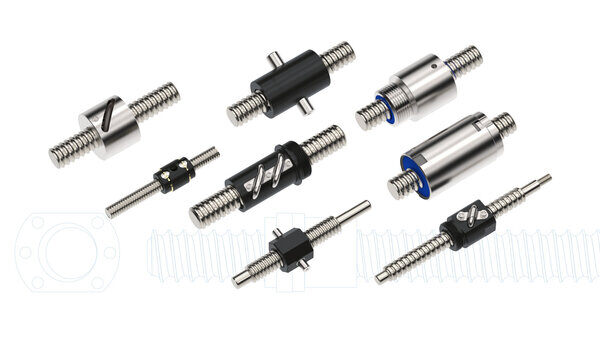Key factors to consider when choosing a ball screw
When choosing the right ball screw for your diverse applications, it is crucial to understand the key factors and application requirements that may impact the ball screw performance. Here are a few factors to consider before choosing a ball screw for your application:
- Load capacity
- Speed and acceleration
- Ball Nut configuration
- Precision and accuracy
- Environmental factors
- Cost and performance
Load capacity
Determining the maximum load capacity that the ball screw will need to handle in your specific application is crucial. Once you know the maximum load capacity, you can choose the most suitable type of ball screw for your requirements. It's essential to consider both static and dynamic loads, as both factors can significantly impact the performance of the ball screw.
Speed and acceleration
Checking the different capabilities of each ball screw is important. Understanding what each ball screw can do and the requirements of your application is essential for its proper function. Selecting a ball screw that meets your system’s needs is the best way to ensure your equipment continues to work correctly.
Precision and accuracy
It is crucial to understand the level of precision and accuracy your application needs. When it comes to high-precision applications, they typically require ball screws with high repeatability and low backlash.
Environmental factors
Considering the environmental conditions that your ball screws are subjected to is critical for the longevity of the ball screws. When a ball screw is exposed to conditions like temperature and humidity, it is important to think about the material of the ball screw. Certain materials and coatings are more susceptible to corrosion than others, increasing the risk of ball screw failure.
Cost and performance
When it comes to buying any component, a big factor to consider is the cost. With more benefits in aspects like precision, reliability and accuracy, considering a high-precision ball screw may be worth the investment. It is important to consider all aspects that may affect the ball screw, including your budget, to make the best decision for your application.
Conclusion
There are many aspects to consider when choosing the right ball screw for your diverse application needs. Before deciding, it is crucial to think about load capacity, speed and acceleration, precision and accuracy, environmental factors, cost and performance of the component. This will help you make the most informed decision possible. If you find that your application requires a custom ball screw, many ball screw manufacturers can help you.



